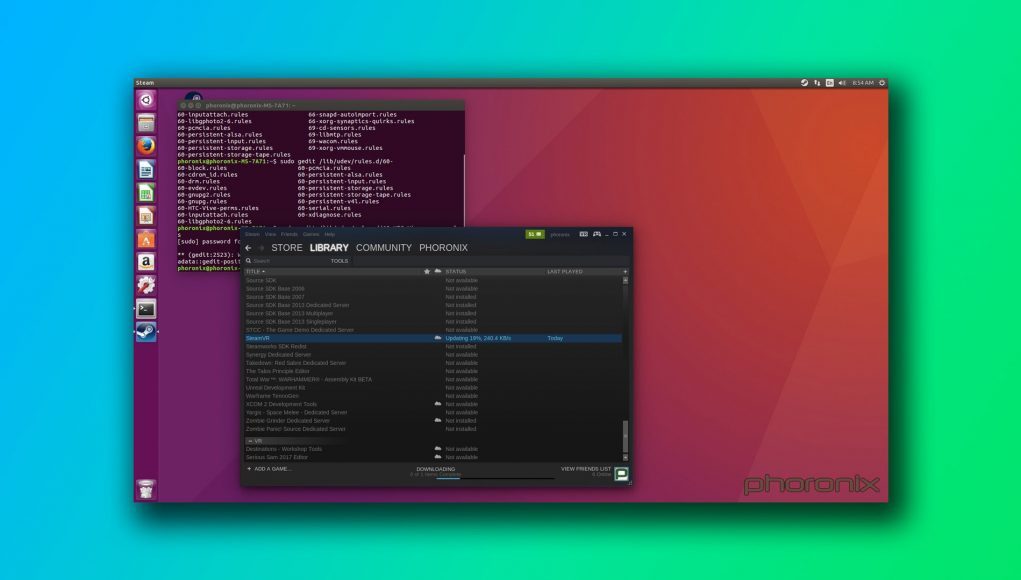The beta channels for the Steam client and SteamVR now support Linux. As a development build, the selection of Linux-supported SteamVR games is very limited, but Valve says the build aims to let developers begin making VR content that supports the open source operating system.
Valve recently provided some positive news for VR on Linux, which has been fairly limited since Oculus ‘paused’ its Linux development in 2015. Announced late last year, Valve has launched of a SteamVR developer build for Linux. According to the GitHub page, “This is a development release. It is intended to allow developers to start creating SteamVR content for Linux platforms. Limited hardware support is provided, and pre-release drivers are required”.
Linux support is long overdue (it was originally planned to be available at the HTC Vive’s launch), and according to Michael Larabel, founder of Phoronix, a leading source of Linux-related reviews and insights, the beta is—as Valve warns that it is a development release—‘more like an early alpha’, and took quite some time to configure and get things working. Larabel points out that Linux represents a very small percentage of the overall gaming market share, making Linux VR gaming currently a niche-within-a-niche situation that will take some time to gain traction.
Valve recommends using the issue tracker on the project’s GitHub page for reporting specific bugs, while general discussion and questions are handled on the Steam Community forum. In the long run, there is hope for significantly improved Linux support resulting from the recently-named OpenXR API, and industry-derived open standard for VR and AR from the Khronos Group, which aims to stem hardware and software fragmentation in as the industry continues to grow.










